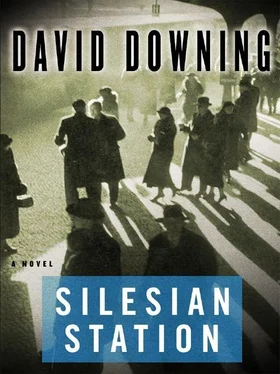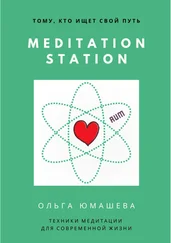David Downing - Silesian Station
Здесь есть возможность читать онлайн «David Downing - Silesian Station» весь текст электронной книги совершенно бесплатно (целиком полную версию без сокращений). В некоторых случаях можно слушать аудио, скачать через торрент в формате fb2 и присутствует краткое содержание. Жанр: Шпионский детектив, на английском языке. Описание произведения, (предисловие) а так же отзывы посетителей доступны на портале библиотеки ЛибКат.
- Название:Silesian Station
- Автор:
- Жанр:
- Год:неизвестен
- ISBN:нет данных
- Рейтинг книги:5 / 5. Голосов: 1
-
Избранное:Добавить в избранное
- Отзывы:
-
Ваша оценка:
- 100
- 1
- 2
- 3
- 4
- 5
Silesian Station: краткое содержание, описание и аннотация
Предлагаем к чтению аннотацию, описание, краткое содержание или предисловие (зависит от того, что написал сам автор книги «Silesian Station»). Если вы не нашли необходимую информацию о книге — напишите в комментариях, мы постараемся отыскать её.
Silesian Station — читать онлайн бесплатно полную книгу (весь текст) целиком
Ниже представлен текст книги, разбитый по страницам. Система сохранения места последней прочитанной страницы, позволяет с удобством читать онлайн бесплатно книгу «Silesian Station», без необходимости каждый раз заново искать на чём Вы остановились. Поставьте закладку, и сможете в любой момент перейти на страницу, на которой закончили чтение.
Интервал:
Закладка:
'You're back, then,' Russell said, as they waited to be served at the bar.
'For the last time, I expect,' Goldstein said. 'The proverbial's about to hit the fan.'
'Why Warsaw?'
'I don't know, really. It feels almost voyeuristic, like watching a bull in its pen before it goes out to die.'
'Nice.'
Goldstein grimaced. 'You think that's strange. I've been in Lublin the last few days, visiting some long-lost relatives. They live in a large block of flats in the Jewish quarter, and I made a list of everyone in the block. I took down their names and ages. Eighty-seven people, all of them Jews.'
'Why?'
'I wanted a record, just in case.'
'In case of what?' Russell asked, though he knew what Goldstein feared.
'In case they disappear.'
Russell looked at Goldstein, wondering if the man was letting his hatred warp his judgement.
'It's not just the Nazis, you know,' Goldstein said. 'Hungary, Romania, Slovakia, Ukraine, Lithuania, here in Poland…if the Nazis start murdering Jews they'll have plenty of helpers.'
'No doubt about that.'
'And think about Poland. The Nazis inherited about half a million German Jews, and six years later they've still got 200,000. If there's a war with Poland they'll win it, and then they'll have three million more Jews to deal with. Where will they send them? Where could they send them?'
The logic was compelling, as logic often was. If Goldstein was right, they were heading into something like hell, and Russell felt more than a little reluctant to accept the inevitability of such a denouement. He clutched for a straw. 'I don't suppose the Germans have re-opened the Beuthen frontier?'
'No, and the Poles have shut down the entire Silesian frontier in retaliation.'
'Wonderful.'
'Gestures have their place. And it's surprising how much both of them seem to enjoy their mutual stupidities. You've heard about the latest postal row?'
'No.' Russell explained that he'd been out of touch for forty-eight hours.
'Ah, well, that idiot Frick has ruled that Polish addresses on letters originating in Germany have to be spelt in the German way, or they won't be allowed out. The Poles have retaliated by saying that all letters with such spelling will simply be returned to the sender. So no one will get any mail from Germany.'
'When's the next press briefing?'
'They're at ten every morning at the Foreign Office press department. It's on the other side of the Square. But don't expect to learn anything new.'
'I don't suppose there's any good news from Moscow?'
'Only bad. The talks with the British and French have been adjourned, and they won't be resumed until the Poles agree to the presence of Soviet troops. Which no one believes they will. Everyone's expecting some hapless British or French diplomat to arrive here in the next day or so, and be told as much by the government. Meantime, rumour has it that the Germans are pushing really hard for a non-aggression pact, and receiving more than a little encouragement. Ribbentrop's just waiting for an invitation to Moscow.' Goldstein looked at his watch. 'I'm headed that way myself, and I ought to be getting to the station.'
'You think a deal's that imminent?'
'Who knows? But the crucial decisions are being taken there, not here.'
Russell watched him walk away, and experienced a momentary feeling of panic. He had gotten used to war being a few weeks away, not a few days. Across the room, the laughter of his fellow journalists seemed almost ghoulish.
Abandoning his drink, he strode the short distance to Pidsulski Square in search of…what? People who hadn't yet heard the bad news, or showed no sign that they had? They were there all right – the prostitutes lingering by the ornate lampposts, the droshky drivers dozing on their seats behind shuffling horses. A couple walked across in front of him, the young man full of enthusiasm for something, the girl sharing it with her smile.
Lambs to the slaughter.
Russell trudged back to the Europejski and took the lift up to his floor. The band in the courtyard below was playing loud enough to keep Europe awake, and the small dance floor was a scrum of swaying bodies. He undressed and lay on the bed, enjoying the cool breeze and the joyous blaring of the horn section. Sleep seemed unlikely but he woke a few hours later, sweat streaming off his body. He had dreamt that the walls were closing in, but it was only the mattress.
Over breakfast the next morning Russell needed a few moments to work out which day it was: Thursday, which gave him less than thirty-six hours to get back to Berlin for his appointment at Silesian Station.
In Pidsulski Square the droshky drivers were standing around smoking, the prostitutes nowhere to be seen. The Foreign Ministry press briefing was well attended, and as uninformative as Goldstein had predicted. A silver-haired Pole wearing spats and a wingtip collar obligingly invited questions about his country's willingness to allow Soviet troops on her soil, then suavely refused to answer them. The only point of substance was provided by another official, who gravely announced that the foreign press corps would shortly be issued with gasmasks.
Russell was still digesting this piece of news when an incongruous sight met his eyes. As he descended the steps outside, a troop of Polish cavalry clip-clopped into the square, pennants fluttering from their lances, scabbards and helmets glinting in the morning sunshine. And all courtesy of H.G. Wells' time machine, Russell mused, as the troop trotted off towards the old royal palace. 'The wave of the past' a familiar voice said behind him, precisely echoing his thought.
It was Yevgeny Shchepkin, the man who had knocked on his Danzig hotel room door in the opening hour of 1939 and lit the fuse of his reluctant espionage career. Shchepkin was wearing a light cotton suit, open shirt and what seemed rather smart-looking shoes for a Soviet agent. His face looked gaunter, but the grey hair was more luxuriant, perhaps in compensation. Russell smiled at the Russian. 'I thought I'd seen the last of you.'
Shchepkin smirked, as if mere survival was a major accomplishment.
In his case it probably was, Russell thought.
'A walk in the park?' the Russian suggested, indicating the entrance to the Saxon Gardens at the side of the palace.
'Why not?'
They strolled in silence to the gateway, as if conversation in the open was forbidden. 'I don't suppose this is a chance encounter,' Russell said as they passed through.
'Well, yes and no. Our being in Warsaw at the same time is a matter of chance. But a meeting had already been decided on, and once one of our people at the Europejski had reported your arrival…'
'It must be fate,' Russell said wryly. 'So why do we need a meeting?'
'Ah, Moscow has decided that using the legation in Berlin smacks of amateurism, and they want to convince the Germans that they're taking your deliveries really seriously. So you and I will be meeting outside Germany on a regular basis – your new job offers ample justification for such trips.'
It did, but such an arrangement would involve Russell in carrying supposedly secret information across the German border. Hauptsturmfuhrer Hirth would be party to the arrangement, of course, but the border authorities would not be. Did that really matter? Or was he still sweating over the experience in March, when his last Soviet contact had planted incriminating material in his suitcase? 'Whatever happened to Comrade Borskaya?' he wondered out loud.
Shchepkin made a face. 'Ah, Irina. She was very keen. Her plot against you was all her own.'
'She was very keen?'
'I'm afraid so.'
'What happened?'
Shchepkin shrugged. 'She was found guilty of working for a foreign power. And I assume executed.'
Читать дальшеИнтервал:
Закладка:
Похожие книги на «Silesian Station»
Представляем Вашему вниманию похожие книги на «Silesian Station» списком для выбора. Мы отобрали схожую по названию и смыслу литературу в надежде предоставить читателям больше вариантов отыскать новые, интересные, ещё непрочитанные произведения.
Обсуждение, отзывы о книге «Silesian Station» и просто собственные мнения читателей. Оставьте ваши комментарии, напишите, что Вы думаете о произведении, его смысле или главных героях. Укажите что конкретно понравилось, а что нет, и почему Вы так считаете.












